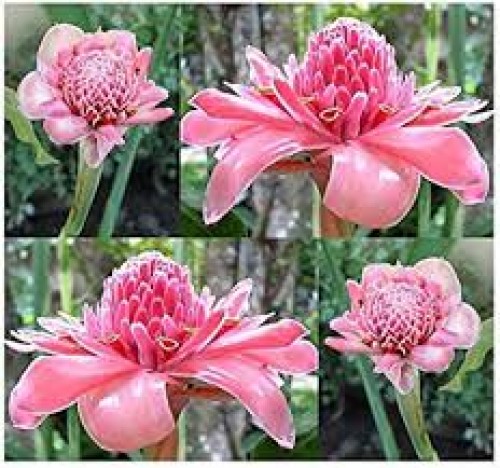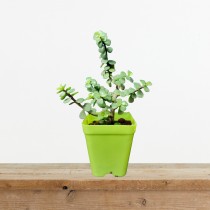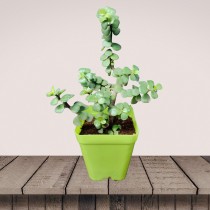60%
off
off
-
Sold
-

out
Pink Ginger Plant (Alpinia purpurata)
Botanical Features & Nature
- Scientific Name: Alpinia purpurata
- Common Names: Pink Ginger, Red Ginger, Ostrich Plume, Pink Cone Ginger
- Family: Zingiberaceae
- Origin: Native to the Maluku Islands and the Southwest Pacific; widely cultivated in tropical and subtropical regions
- Height: Typically grows between 3 to 15 feet (1 to 4.5 meters)
- Leaves: Large, glossy, lance-shaped leaves arranged alternately along the stem
- Flowers: Showy, bright pink to red bracts resembling cones; true flowers are small and white, nestled within the bracts
- Growth Habit: Perennial herbaceous plant with rhizomatous roots
Care & Cultivation
- Sunlight: Thrives in partial shade to full sun; prefers bright, indirect light
- Soil: Prefers well-drained, fertile soils rich in organic matter; pH between 6.0 and 6.5
- Watering: Keep soil consistently moist but not waterlogged; water generously during the growing season
- Fertilization: Apply a balanced fertilizer monthly during spring and summer to promote healthy growth and flowering
- Temperature: Prefers warm, humid environments; protect from temperatures below 45°F (7°C)
- Pruning: Remove spent flowers and dead or damaged leaves to encourage new growth
- Propagation: Propagated through division of rhizomes or stem cuttings
Uses & Benefits
Medicinal Applications
- Traditionally used for its anti-inflammatory and analgesic properties
- Employed in treating digestive issues, arthritis, and respiratory ailments
- Contains compounds like gingerol and shogaol, known for their antioxidant and antimicrobial effects
Environmental Significance
- Attracts pollinators such as bees and butterflies, enhancing garden biodiversity
- Contributes to soil stabilization with its rhizomatous root system
- Improves air quality by absorbing pollutants
Ornamental & Cultural Importance
- Popular ornamental plant in tropical gardens for its vibrant flowers and lush foliage
- Used in floral arrangements and as a cut flower due to its long-lasting blooms
- Symbolizes resilience and beauty in various cultures
Advantages of Planting Pink Ginger
- Low Maintenance: Requires minimal care once established
- Fast Growth: Rapidly establishes, providing quick coverage and greenery
- Versatility: Suitable for borders, containers, and as a specimen plant
- Pest Resistance: Generally resistant to pests and diseases
- Aesthetic Appeal: Adds vibrant color and tropical flair to landscapes
Cultural Significance
- In some cultures, Pink Ginger is associated with healing and protection
- Used in traditional ceremonies and rituals symbolizing renewal and vitality

